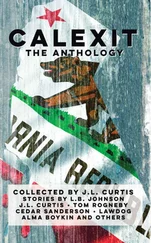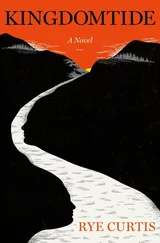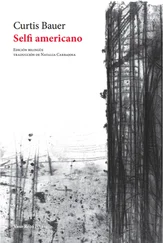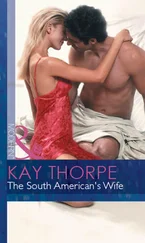Curtis Sittenfeld - American Wife
Здесь есть возможность читать онлайн «Curtis Sittenfeld - American Wife» весь текст электронной книги совершенно бесплатно (целиком полную версию без сокращений). В некоторых случаях можно слушать аудио, скачать через торрент в формате fb2 и присутствует краткое содержание. Жанр: Старинная литература, на английском языке. Описание произведения, (предисловие) а так же отзывы посетителей доступны на портале библиотеки ЛибКат.
- Название:American Wife
- Автор:
- Жанр:
- Год:неизвестен
- ISBN:нет данных
- Рейтинг книги:4 / 5. Голосов: 1
-
Избранное:Добавить в избранное
- Отзывы:
-
Ваша оценка:
- 80
- 1
- 2
- 3
- 4
- 5
American Wife: краткое содержание, описание и аннотация
Предлагаем к чтению аннотацию, описание, краткое содержание или предисловие (зависит от того, что написал сам автор книги «American Wife»). Если вы не нашли необходимую информацию о книге — напишите в комментариях, мы постараемся отыскать её.
American Wife — читать онлайн бесплатно полную книгу (весь текст) целиком
Ниже представлен текст книги, разбитый по страницам. Система сохранения места последней прочитанной страницы, позволяет с удобством читать онлайн бесплатно книгу «American Wife», без необходимости каждый раз заново искать на чём Вы остановились. Поставьте закладку, и сможете в любой момент перейти на страницу, на которой закончили чтение.
Интервал:
Закладка:
Admittedly, the area possesses a dowdiness I personally have always found comforting, but to think of Wisconsin specifically or the Midwest as a whole as anything other than beautiful is to ignore the extraordinary power of the land. The lushness of the grass and trees in August, the roll of the hills (far less of the Midwest is flat than outsiders seem to imagine), that rich smell of soil, the evening sunlight over a field of wheat, or the crickets chirping at dusk on a residential street: All of it, it has always made me feel at peace. There is room to breathe, there is a realness of place. The seasons are extreme, but they pass and return, pass and return, and the world seems far steadier than it does from the vantage point of a coastal city.
Certainly picturesque towns can be found in New England or California or the Pacific Northwest, but I can’t shake the sense that they’re too picturesque. On the East Coast, especially, these places—Princeton, New Jersey, say, or Farmington, Connecticut—seem to me aggressively quaint, unbecomingly smug, and even xenophobic, downright paranoid in their wariness of those who might somehow infringe upon the local charm. I suspect this wariness is tied to the high cost of real estate, the fear that there might not be enough space or money and what there is of both must be clung to and defended. The West Coast, I think, has a similar self-regard—all that talk of proximity to the ocean and the mountains—and a beauty that I can’t help seeing as show-offy. But the Midwest: It is quietly lovely, not preening with the need to have its attributes remarked on. It is the place I am calmest and most myself.
THE WEEKEND BEFORE my senior year of high school, I emerged from Jurec Brothers’ butcher shop late in the afternoon on Saturday, carrying a pound of ground beef my mother had asked me to pick up, when I heard the salutatory honk of a nearby car horn. I turned my head to see a mint-green Ford Thunderbird with a white roof; leaning out the passenger window, tanned and smiling, was Andrew Imhof. I waved as I stepped off the curb, moving between two parked cars. When I was closer, I could see that beyond Andrew, driving, was his brother, Pete; the car was a two-seater.
“Welcome back,” Andrew said.
“How’d you know I was gone?”
“After you weren’t at Pine Lake the other night, I thought you might be sick, but Dena said—not that Dena and I are—I just ran into her there—”
“Not that he’s feeding at her trough again,” Pete said. “He wants to make that perfectly clear.” Pete leaned over the steering wheel and grinned sarcastically. He was four years older; after high school, he’d gone on to the University of Wisconsin at Madison, and presumably, he’d graduated the previous June. He and Andrew didn’t look much alike: They had the same hazel eyes, but Pete didn’t have Andrew’s impossible eyelashes, and where Andrew was lean and fair, Pete was meaty and had darker hair. He looked like an adult man, and not a terribly appealing one.
Andrew rolled his eyes good-naturedly in the direction of his brother and said to me, “Ignore him. You were in Michigan, huh?”
“My dad wanted to see the Mackinac Bridge, and then we went to Mackinac Island. They don’t have any cars there, only carriages.”
“Where goeth the horses, so goeth the shit,” Pete said. “Am I right?”
“Pretend he’s not there,” Andrew said.
“It sounds like a lot of people were at Pine Lake,” I said. “Dena told me it was the most fun she’d had all summer.”
“Really?” Andrew looked amused. “It was mostly just Bobby challenging anyone who’d listen to a chicken fight. The real party will be next weekend at Fred’s, have you heard about that? If it gets below seventy-five degrees, we’re making a bonfire.”
Pete leaned forward again. “And Andrew promises he’ll roast you a nice big wiener. This has been a fascinating conversation, but I’ve got places to go, little brother. You and Alice want to wrap things up?”
Andrew shook his head again, and Pete revved the engine. “Sorry,” Andrew said to me. “See you on Tuesday at school. Hey, pretty cool we’ll finally be seniors, huh?”
I smiled. “The great class of ’64.”
The mint-green Thunderbird pulled away, and as I walked home carrying the ground beef for my mother, an unexpected energy seized me, spurred by a jumble of fresh thoughts: how good Andrew looked, tanned from the summer sun; how weird it was that Pete Imhof knew my name; how excited I felt for the start of school, for new classes and the perks of being the oldest students; and how much I hoped it fell below seventy-five degrees on Saturday so they’d build the bonfire at Fred’s party and I could stand next to it, braced by that wall of heat against my body, watching the leap of the flames, being reminded, as I always was by fires, that they were alive and so was I.
WHEN I SAW Andrew over the next few days, sitting a couple rows ahead of me in the bleachers at the assembly that first morning back, or pulling books out of his locker in a crowded hall between classes, there was little chance of us talking, or even making eye contact, and I didn’t try. I was always with Dena or another friend, or he was with guys from football, and I felt like what I had to say to him, I could say only when we were alone. It wasn’t even that I knew what I wanted to say, but surely, if we found ourselves with no one else around, I’d be able to come up with something.
All that week, I had the sense that we were making our way toward each other—even when we passed outside the science classrooms, headed in opposite directions, I had this sense—and I was not surprised on Thursday afternoon when, half an hour after the final bell of the day had rung, I walked out of the library and saw him coming from the gym, dressed for football practice in a jersey and those shortened pants, holding his helmet in his right hand. Looking back, I find it hard to trust my memory of this episode, hard to believe I’m not infusing it with meaning it didn’t contain at the time. It was a sunny afternoon (as it turned out, the temperature would not fall below seventy-five degrees that Saturday, or for another few weeks), and the cicadas were buzzing and the trees and grass were green, and we were walking toward each other, he was squinting against the sun, we both were smiling, and I loved him, I loved him completely, and I knew that he loved me back. I could feel it. That moment—inside it, I could anticipate the thing I most wanted and I could be beyond it, it had happened already, and I was ensconced in the rich reassurance of knowing it was certain and definite.
Or maybe this is only what I think now. But it was all we ever had! Approaching each other, him from the gym, me from the library—this was when I walked down the aisle and he was waiting, this was when we made love, it was every anniversary, every reunion in an airport or train station, every reconciliation after a quarrel. This was the whole of our lives together.
It seemed like the natural thing to do when we were in front of each other would have been to embrace, but we didn’t. It is a great regret, though not, certainly, my greatest. We stood there with the roiling energy of not hugging between us, and he said, “Sorry about my brother the other day,” gesturing over his shoulder as if perhaps Pete were nearby. “I hope he didn’t offend you.”
“No, he’s funny, but you two seem very different.”
“Wait, I’m not funny?”
“No, you’re funny, too,” I said. “You’re both funny.”
“That’s very diplomatic—I appreciate it. You coming to the game tomorrow?”
“I’ll be selling popcorn.” Working at the refreshment stand was one of my Spirit Club duties. “I heard you’re starting this year,” I said.
Читать дальшеИнтервал:
Закладка:
Похожие книги на «American Wife»
Представляем Вашему вниманию похожие книги на «American Wife» списком для выбора. Мы отобрали схожую по названию и смыслу литературу в надежде предоставить читателям больше вариантов отыскать новые, интересные, ещё непрочитанные произведения.
Обсуждение, отзывы о книге «American Wife» и просто собственные мнения читателей. Оставьте ваши комментарии, напишите, что Вы думаете о произведении, его смысле или главных героях. Укажите что конкретно понравилось, а что нет, и почему Вы так считаете.












